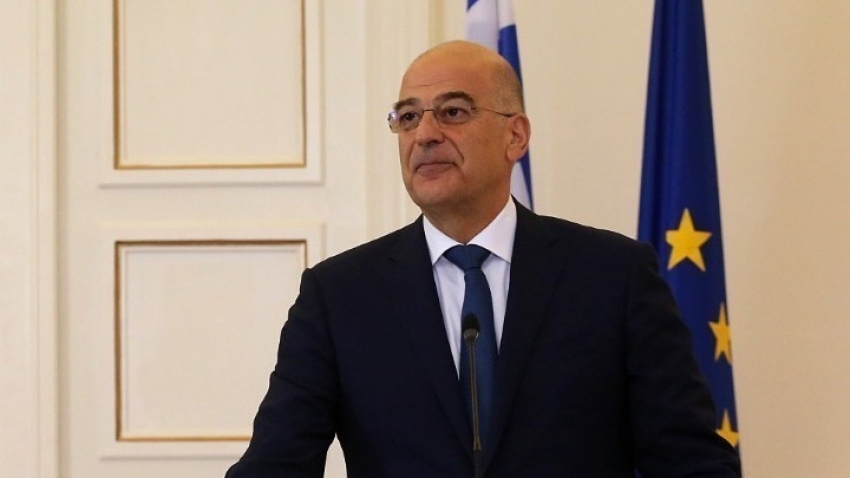
Greece’s Foreign Minister, Nikos Dendias on Thursday called for EU member states who do not share their burden of the migration crisis, to be punished perhaps with even sanctions.
Dendias made the comments during an interview with 'Parapolitika' radio station where he underlined the need for the European Union to adopt measures - or even sanctions - against the member-states that shirk their share of the burden when it comes to migration.
The Greek Foreign Minister went on to say that EU should impose "internal, economic sanctions on those countries that only ride along for the benefits and give up, pointing to others, whenever the going gets difficult."
According to Dendias, the Greek government will create a mechanism to tackle the increased migration flows. Europe may have a specific way of making decisions and most often this requires unanimity, but Greece has the option of proposing specific things within the context of a common European policy, he added.
Dendias referred to Turkey's stance on migration likening it to extortion and added that Greece and Europe cannot be at its mercy.
"What Turkey is attempting to do, to turn the efforts of desperate people seeking a better future into a tool, is a huge mistake," the minister added.
When asked about the Turkish president's repeated references to revising the Lausanne Treaty, Dendias stressed that this was "a recipe for absolute disaster".
"The last thing we need is to look at the framework on which we are standing and start demolishing it ourselves," he said.
"Greece is not an anti-Turkish country. Our policy, our alliances are not against Turkey," noted Dendias and called on Turkey to stop its incessant efforts to escalate tension and also to stop violating Cyprus' legal rights.
When asked about the failure of the EU Summit to reach an agreement on the launch of EU accession talks with Albania and North Macedonia - and the possible repercussions this may have on use of the name North Macedonia 'erga omnes' - Dendias replied that Greece will not stand by powerless or indifferent on this matter.
Referring to the Prespes Agreement, he described this as 'a tool' where Greece had done what was required of it under the Agreement, but now depended on the agreement of the French, the Dutch and all the others in order to get the things due to it in return.
He also noted that his trip to the Vatican and his meetings with officials there was partly carried out because the specific state has influence in the Western Balkans. According to Dendias, he expects the Vatican to undertake initiatives there in the coming months.
"We are talking with everyone involved and I have already discussed it with (the Foreign Minister of North Macedonia) Nikola Dimitrov. We are talking with our European partners... We will try the put the whole story in the framework of a European perspective and of mutual interest, while protecting Greece's legitimate interests, whether this relates to 'erga omnes', or our traditions or the names of enterprises," he added.
Dendias also noted that "New Democracy was not against an agreement; it was against the specific provisions of this agreement".
"We do not say that an agreement should not have been reached. We do not say that we are not happy with the change of the name, though of course we would prefer if it did not include the name Macedonia at all....We say that a better agreement could have been reached," the Minister stated.
In addition to the Western Balkans, Dendias said his visit to the Vatican had also focused on migration.
"Pope Francis has a very vivid memory of his visit to Lesvos," the Minister noted, while underlining the importance of enhancing relations between Greece and the Vatican.
"Nobody should consider the Vatican to be simply a church. The Papal State has a huge and extended network... which we should take advantage of, in the best sense of the word."
Finally, the Greek Foreign Minister announced that he will meet with his Russian counterpart Sergey Lavrov on November 6.
"We have traditional ties with Russia and we will preserve and deepen them," said Dendias: "There was deterioration in relations between the previous government and the Russian side and now we must put our relations back on track."
For example, Dendias noted that recent Russian positions on the Cyprus issue "were not at the level we wanted. We will seek to restore our relations with Russia to the level they should have."

